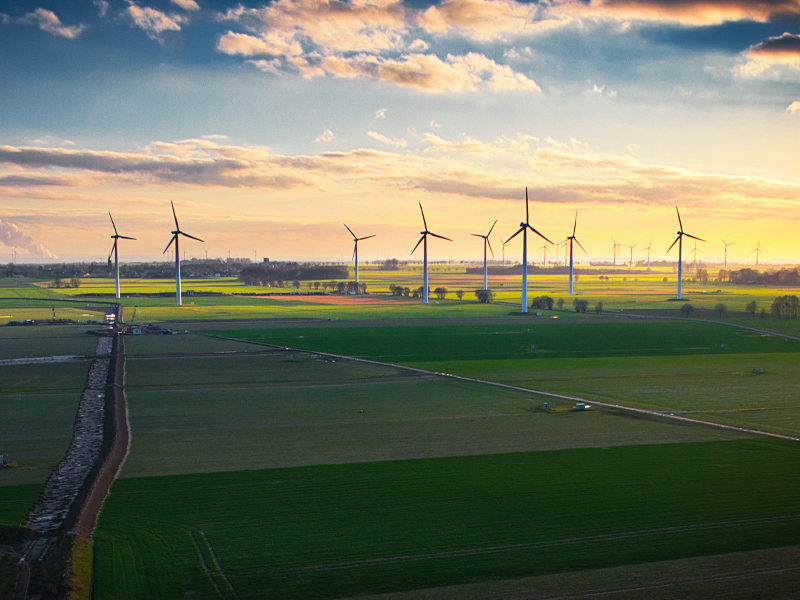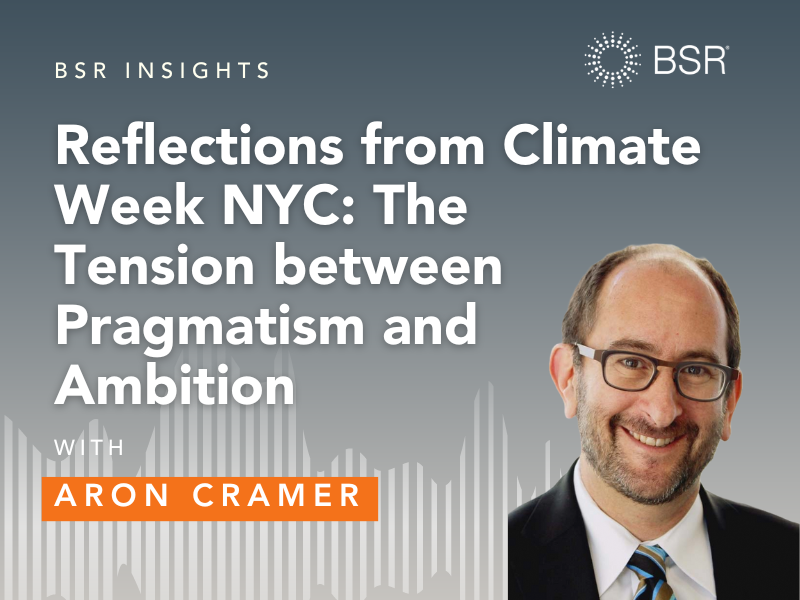
Photo by 42 North on Unsplash
Authors
December 12, 2020: this Saturday marks the fifth anniversary of the historic adoption of the Paris Agreement. The world’s nations reached consensus to take on the existential threat of climate change—to protect our planet, the natural resources upon which we depend, our health, and our communities. The monumental victory gave us hope. Unbeknownst at the time, five years later we are reflecting on the leadership of business, rather than government, in charting the way toward a net zero future.
The Paris Agreement set a long-term goal to limit the increase of global warming to well below 2°C above pre-industrial levels while pursuing efforts to limit it to 1.5°C. Through this agreement, countries agreed to peak global GHG emissions as soon as possible and then rapidly reduce them to reach net zero emissions in the second half of this century, on the basis of equity.
As part of BSR’s work with We Mean Business, we advocated for the adoption of the global net zero goal in the Paris Agreement. We sought an international agreement that would catalyze private sector action, making the transition to a low-carbon economy inevitable, irreversible, and irresistible.
Setting Paris-aligned emissions reduction goals—or science-based targets—has since become the gold standard for sustainable business. More and more companies have committed to goals representing their fair share of meeting the Paris Agreement. Their aggregate weight is now sufficient to dent the global emissions trajectory. For example, companies committed to the Science-Based Targets initiative now have aggregate annual operational emissions of 1.8 Gt/year—if they were a country, this would make them the world’s fourth largest emitter.
More recently, the private sector is stepping up its ambition to build net zero value chains no later than 2050, thus contributing to reaching the Paris Agreement’s 1.5°C goal. Because collaboration is essential to achieving this, companies are increasingly working together—within and across industries—to scale their impact. One example is Transform to Net Zero, a cross-sector group of climate leaders with the vision of enabling an inclusive net zero economy no later than 2050.
We sought an international agreement that would catalyze private sector action, making the transition to a low-carbon economy inevitable, irreversible, and irresistible.
The spike in business commitments to net zero targets is even more remarkable when considering the backdrop of regulatory weakness. However, 2020 is signaling an emergence of government leadership.
In September, the European Commission announced its plan to reduce EU greenhouse gas (GHG) emissions by at least 55 percent by 2030 compared to 1990 levels, putting it on a path toward climate neutrality by 2050.
At this year’s UN General Assembly, China—the world’s largest emitter—pledged to peak carbon emissions before 2030 and reach carbon neutrality before 2060. This commitment helps build desperately needed momentum to put the world on track to meet the Paris Agreement. However, with concerns about its current coal expansion, China’s forthcoming 14th five-year plan (2021-2025) will signal its first steps to reaching the 2060 goal.
Japan and South Korea recently also committed to carbon neutrality by 2050. Prime Minister Suga is focusing on green technologies as the driver of economic growth in Japan, the world’s fifth largest emitter. And the South Korean commitment followed the release of a Green New Deal, a national development strategy with an emphasis on expanding green jobs.
In addition to these commitments from the EU and the three largest East Asian economies, a Biden Administration could put the Paris Agreement goals “within striking distance,” according to analysis from Climate Action Tracker. But the first challenges to reaching net zero emissions by 2050 are the near-term actions to cut carbon by 2030. Significant effort in this Decisive Decade is crucial to keep the world on track and avoid dangerous climate consequences.
Business action can demonstrate that the net zero economy is not merely possible but plausible.
As we reflect on the last five years and look ahead to the next five and beyond, we must remain laser-focused on results. National governments are now updating their pledges under the Paris Agreement, which will demonstrate how serious the public sector is in fulfilling their commitments. Business action can demonstrate that the net zero economy is not merely possible but plausible.
While ambitious climate policies are needed to catalyze business ambition, leading businesses will themselves continue to transition to a net zero, climate-resilient economy. We can no longer delay action, and we ought to seize the many opportunities before us to grow green jobs, improve air quality, deploy new products and services, and protect our communities.
Looking ahead to the Paris Agreement’s 10-year anniversary, BSR aims to make net zero corporate action so commonplace that there will be no doubt that we will make its vision a reality.
Topics
Let’s talk about how BSR can help you to transform your business and achieve your sustainability goals.








